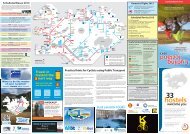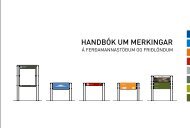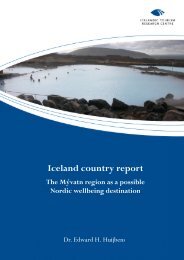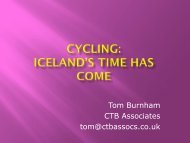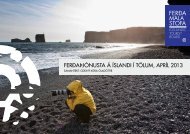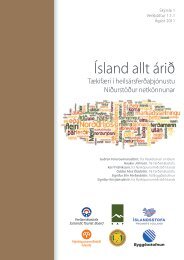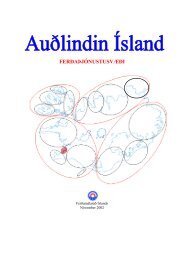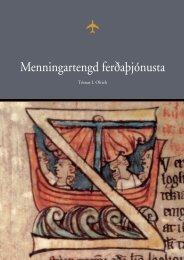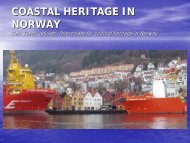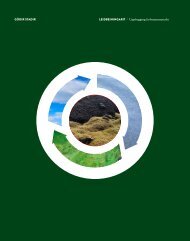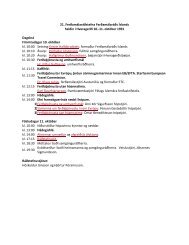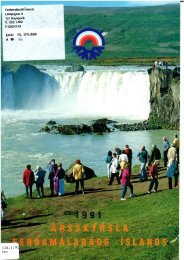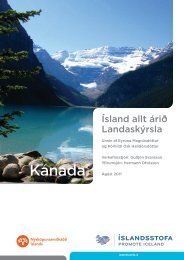Untitled
Untitled
Untitled
Create successful ePaper yourself
Turn your PDF publications into a flip-book with our unique Google optimized e-Paper software.
Whatever alternatives there may be, it is clear that these would entail an<br />
engagement with:<br />
multiple associations of humans and nonhumans waiting for their unity<br />
to be proved by work carried out by the collective, which has to be<br />
specified through the use of the resources, concepts, and institutions of<br />
all peoples who may be called upon to live in common on an earth that<br />
might become, through a long work of collecting, the same earth for<br />
all (Latour 2004, p. 46).<br />
Earthly methodology<br />
About to reach the end of our journey on the Island of tourism and tourist<br />
imaginationings we cannot avoid feeling an affinity with Bob Dylan when<br />
he somewhere stated that; “Images are taken at face value and it kind of<br />
freed me up”. And method can be freed too. Without the heavy burden of<br />
being a set of techniques for providing an image of a given reality “out<br />
there” or a subjective order “in here”, method becomes productive of<br />
realities rather than merely reflecting them:<br />
Method, then, unavoidably produces not only truths and non-truths,<br />
realities and non-realities, presences and absences, but also<br />
arrangements with political implications. It crafts arrangements and<br />
gatherings of things – and accounts of the arrangements of those things –<br />
that could have been otherwise (Law 2004, p.143).<br />
That methods participate in producing realities, like those we find in<br />
tourism studies, challenges many of the traditional and standard accounts<br />
that one finds in textbooks on method. Most importantly, it signals a kind<br />
of ontological politics in research:<br />
What does that mean in practice? The answer is that I do not know. But<br />
one thing is clear. In the longer run it is no longer obvious that the<br />
disciplines and the research fields of science and social science are<br />
appropriate in their present form (Law 2004, p.156, see also Mol 2000,<br />
p. 97).<br />
In the short run, we have depicted tourism and images as practices<br />
of imaginationing and on-going exemplifications of life in-between<br />
101



